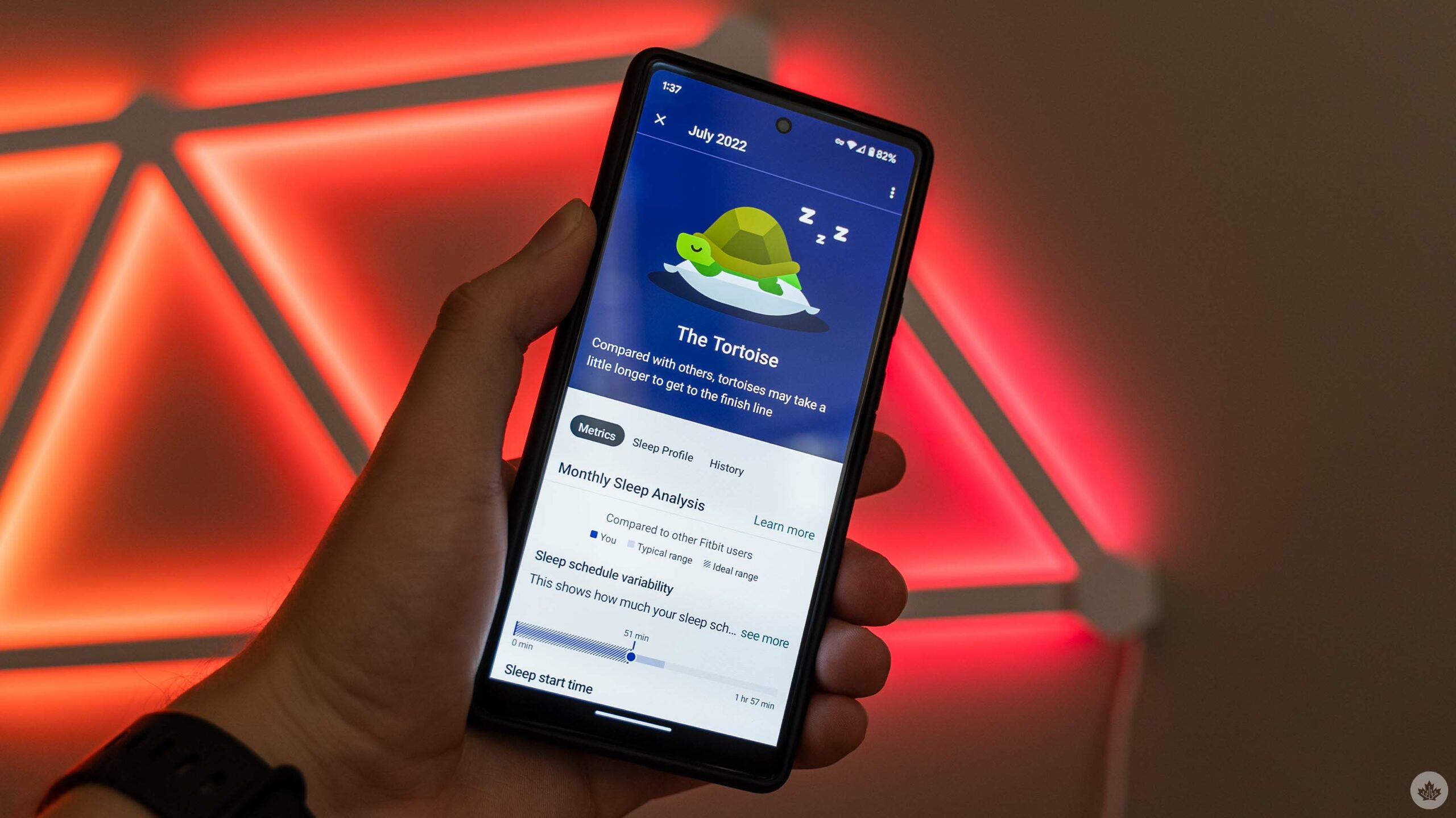Back in June, Fitbit announced a new ‘Sleep Profiles‘ feature rolling out to Premium subscribers that offered more insight into how people slept and assigned them a ‘Sleep Animal’ as a way to make the information more fun and easier to digest.
The Fitbit app requires users to wear their supported Fitbit device for at least 14 nights each month to gather enough sleep data to assign a profile. Supported devices include the Fitbit Sense, Versa 3 and 2, Charge 5, Luxe and Inspire 2.
Unfortunately, I missed the narrow window to get my first Sleep Profile report at the end of June, but after getting my 14 nights in July, I now have my August report and my sleep animal — I got ‘The Tortoise,’ if you want to compare. There are six sleep animals in total, with the other six being bear, dolphin, giraffe, hedgehog, and parrot.
How to find your sleep animal
Log 14 sleeps to get a Sleep Profile
To find your sleep animal, tap the sleep card in Fitbit, then look for the ‘How you slept last month’ in the Sleep menu. When you tap that, you’ll see your sleep animal at the top, followed by your monthly sleep metrics. Users can also tab through to get more information about their Sleep Profile and sleep history.
Sleep metrics show breakdowns of various different data points from sleep start time to sleep stability. Moreover, Fitbit shows how your sleep stacks up to the typical sleep of other Fitbit users like you and the ideal range for each metric.
I found the information in my Sleep Profile to be rather interesting, although at this point, I’m not sure what to do to improve my sleep, not that there’s much I can do. My wife and I recently had a baby, which really tossed a wrench into my sleep and is likely the leading cause behind things like my abysmal restoration score.
Still, it was neat to see things like the ‘time before sound sleep’ score, which shows it takes me about 27 minutes to fall soundly asleep. I’ve always felt like it takes me about half an hour to really fall asleep, so it’s good to know I was right in that regard.
Part of the Premium package
Overall, I’d say Sleep Profiles are a helpful addition to the Fitbit suite of software, although I don’t think it would get me to sign up for the Premium subscription (Fitbit provided me with Premium access so I could try the feature).
Still, there are plenty of other Premium features that might be more enticing overall for those looking to track their health. Other features include ‘Daily Readiness’ scores, snore and noise detection, wellness reports, mindfulness sessions, access to video workouts, games and challenges, and recipes.
Of those things, the sleep features are what I use the most. I’m not the most active person (although I probably should exercise more), and I’ve used the occasional Fitbit video workout. For me, I think Fitbit’s sleep analysis has helped improve my sleep by offering insights into bad sleep habits, but it can only do so much to combat the effects of having a four-month-old.
In Canada, Fitbit Premium costs $12.99/mo or $104.99/year. You can learn more about it here.
For all the latest Technology News Click Here
For the latest news and updates, follow us on Google News.

